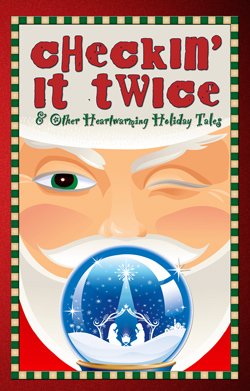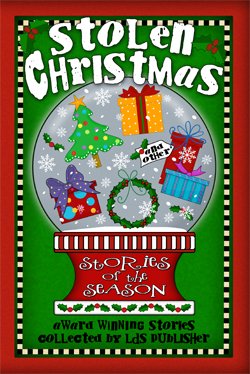A big thank you to our Prize Sponsors! Please take a moment to learn more about this month’s wonderfully generous sponsors.

Ring around the rosy, a pocket full of posies, ashes, ashes we all fall down . . .
That simple rhyme turns negotiator Claire Michaels’ current hostage situation into an international incident. Claire just wants to help get everyone out safely, but she’s dealing with an al-Qaeda operative who has the means to become another bin Laden. Time is slipping away as negotiations break down. Can she overcome her scars of the past in order to get the hostage out alive and possibly stop an assault on U.S. national security?
Navy SEAL Rafe Kelly is on leave to recover from a knee injury he suffered during his tour in Afghanistan and he doesn’t expect to be fighting terrorists on his home turf. But when he is taken hostage and his brother is kidnapped, Rafe teams up with a hostage negotiator in order to stay alive and get his brother back. The terrorist is always one step ahead of them, however, and the situation quickly turns from desperate to deadly. Will Rafe be able to save himself and his country without anyone he loves getting caught in the crossfire?
 Julie Coulter Bellon loves to write international romantic suspense novels because she gets to travel to distant lands to do research and add an authentic feel to all of her books. Her favorite cities so far are Athens, Paris, Ottawa, and London. She’s learning to play the bagpipes and though she has yet to master the instrument, she’s working on it.
Julie Coulter Bellon loves to write international romantic suspense novels because she gets to travel to distant lands to do research and add an authentic feel to all of her books. Her favorite cities so far are Athens, Paris, Ottawa, and London. She’s learning to play the bagpipes and though she has yet to master the instrument, she’s working on it.
Julie earned a Secondary Education, English teaching degree from Brigham Young University and she currently teaches a journalism course, which keeps her on the cutting edge of current events and world news. You can follow Julie’s acclaimed writing, her moose-like bagpiping and her take on everything from family to world-shaping events at her website www.juliebellon.com or her blog http://ldswritermom.blogspot.com.
 Self-proclaimed bachelorette Athena Di Jasper is at the top of her game. Her online magazine is thriving, and she’s in a comfortably static relationship, free of the kind of commitment that could lead to marriage—she’s seen her parents’ rocky union, and it’s not for her. When her on-again, off-again boyfriend Karl wants to move their relationship to the next commitment level, Athena’s obvious dismay leads him to challenge her workaholic tendencies. His accusation is true: she hasn’t even paused to read a novel in years. Determined to prove Karl wrong, Athena takes a break from her hectic schedule to peruse a used bookstore, where she meets Grey, the intriguing—and single—propietor. Her quest for change and her desire to see more of Grey leads Athena to stray from her to-do list and join the Newport Ladies Book Club.
Self-proclaimed bachelorette Athena Di Jasper is at the top of her game. Her online magazine is thriving, and she’s in a comfortably static relationship, free of the kind of commitment that could lead to marriage—she’s seen her parents’ rocky union, and it’s not for her. When her on-again, off-again boyfriend Karl wants to move their relationship to the next commitment level, Athena’s obvious dismay leads him to challenge her workaholic tendencies. His accusation is true: she hasn’t even paused to read a novel in years. Determined to prove Karl wrong, Athena takes a break from her hectic schedule to peruse a used bookstore, where she meets Grey, the intriguing—and single—propietor. Her quest for change and her desire to see more of Grey leads Athena to stray from her to-do list and join the Newport Ladies Book Club.
When Athena’s world is turned upside down by a family tragedy, she’s left to care for her terminally ill father. Juggling the demands of attending to an ailing parent and running her business, Athena comes to value the friendships of the book-club members, and she find herself relying more and more on Grey’s support. When she stumbles across an old shoebox in her mother’s closet, she’s stunned by its contents, which hold unexpected truths about her parents’ relationship. As Athena delves into a past that defies her judgment about her parents’ marriage, she is forced to reevaluate her views on life and love.
 Heather B. Moore is the award-winning author of several historical novels which are set in Ancient Arabia and Mesoamerica. She is not old and doesn’t remember the time period, so google.com has become a great friend. Although she has spent several years living in the Middle East, she prefers to forget the smells. Heather writes under the pen name H.B. Moore so that men will buy her books. She is also the author of one non-fiction book, which took her much too long to research and write, so she is back to novel writing.
Heather B. Moore is the award-winning author of several historical novels which are set in Ancient Arabia and Mesoamerica. She is not old and doesn’t remember the time period, so google.com has become a great friend. Although she has spent several years living in the Middle East, she prefers to forget the smells. Heather writes under the pen name H.B. Moore so that men will buy her books. She is also the author of one non-fiction book, which took her much too long to research and write, so she is back to novel writing.
Heather graduated from Brigham Young University with a major in Fashion Merchandising and minor in Business Management—which has absolutely nothing to do with writing novels. But at least she can balance a mean checkbook and color-coordinate her kids’ school clothes.

Susan Winters has a secret.
Every year at Christmastime, she abandons her solitary lifestyle and anonymously spreads the joy and spirit of Christmas as The Candy Cane Queen.
But this year, something’s about to change…
The Candy Cane Queen is a 16 page short story and comes in booklet format from Cedar Fort.
 Janice Sperry was born in Murray, Utah. She attended Westminster College in Salt Lake City where she earned her Bachelors degree. She is married to Jason Sperry and began her adventures in parenting in 1999. She uses her children, Spencer, Alena, and Calton, as an inspiration for writing.
Janice Sperry was born in Murray, Utah. She attended Westminster College in Salt Lake City where she earned her Bachelors degree. She is married to Jason Sperry and began her adventures in parenting in 1999. She uses her children, Spencer, Alena, and Calton, as an inspiration for writing.
In addition to this The Candy Cane Queen, Janice also has a short story in both Stolen Christmas (vol. 1) and Checkin’ It Twice (vol. 2).

Can Santa learn a lesson from the Savior?
Can a foreign exchange student help you see Christmas a little more clearly?
Do things really look better from a distance?
And just how many holiday ornaments does one woman need?
Get in the Christmas Spirit with Volume 2 of award-winning stories from LDS Publisher’s 2010 and 2011 Christmas Story Contests! Sixteen short stories from popular LDS authors to help you remember the reason for the season!
Featuring LDS Authors: Brenda J. Anderson, Amie Borst, Weston Elliott, Kasey Eyre, Gussie Fick, Angie Lofthouse, Teresa G. Osgood, Brian C. Ricks, Jennifer Ricks, LeeAnn Setzer, Jennifer Carson Shelton, Rob Smales, Janice Sperry, LisaAnn Turner, and Michael Young. Learn more about these authors at checkinittwice.blogspot.com.
Winner’s Choice: Print or eBook.
Click here to see Release Day Bonus Goodies!
 On the surface, Eva Black’s life seems practically perfect. The small-town kindergarten teacher is set to wed ambitious lawyer Sean Langley, and their plans for a dream wedding are well underway. Eva accepts that she will soon live life in the spotlight as a member of the prestigious Langley family, but can she overlook her fiance’s tendency to dominate the details of her life and push the limits of her standards?
On the surface, Eva Black’s life seems practically perfect. The small-town kindergarten teacher is set to wed ambitious lawyer Sean Langley, and their plans for a dream wedding are well underway. Eva accepts that she will soon live life in the spotlight as a member of the prestigious Langley family, but can she overlook her fiance’s tendency to dominate the details of her life and push the limits of her standards?
Mere weeks before the wedding, Eva is thrown into a traumatic, life-changing event that changes her view of family commitment and creates a sharp contrast between her ideals and Sean’s. With her engagement to Sean in jeopardy, Eva finds herself relying on the support and encouragement of Peter, her kind and attentive next-door neighbor. Faced with a choice between her penitent fiance and the increasingly mysterious Peter, Eva is unprepared for the consequences—and peril—that come with her decision.

Kate Palmer began her career as an elementary school teacher, but was soon promoted to fulltime mom. She is the mother of six living in the country. Her husband is trying to teach her to be a farm girl. She can’t saddle a horse, but she knows how to butcher a chicken. After a day of chasing children, cooking meals, and doing laundry, she likes to escape into a good book.

What happens when you’re so poor you have to steal your Christmas presents?
Or have you ever taken a punch in the face as your Christmas gift to the girl you love?
Or saved Christmas while hunting were-weevils?
These award-winning Christmas stories are the best of the best from the 2007–2009 LDS Publisher Christmas Story Contests. From Christmases past, to present to future; from sweet and inspirational to zany and delightful—there’s a story for everyone in this eclectic collection.
Featuring LDS Authors: Roger Bonner, Don Carey, Laura Craner, Joyce DiPastena, Sarah M. Eden, L.T. Elliot, Gussie Fick, Melanie Goldmund, M. Gray, Taegan Hutchinson, Angie Lofthouse, Lori Nawyn, Tristi Pinkston, Brian C. Ricks, Sandra Sorenson, Janice Sperry, and Christine Thackeray. Learn more about these authors at www.stolenchristmasanthology.blogspot.com. [Print and ebook versions available November 15th!]
Winner’s Choice: Print or eBook.
To enter to win one of these books, simply leave a “thoughtful” comment on any post on this site.
CLICK HERE for details on sponsoring the contest.















 With her crisp writing style and attention to detail,
With her crisp writing style and attention to detail, 

